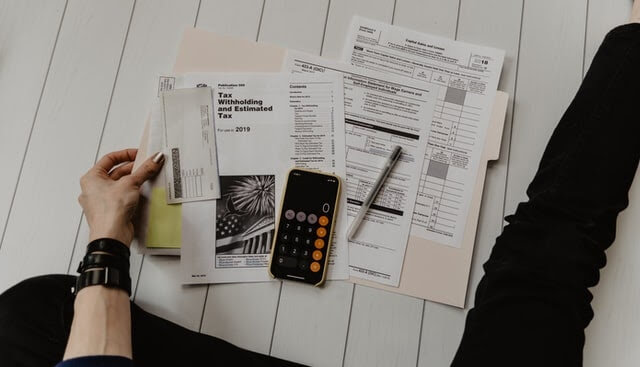Investing in real estate can be a really effective tool in your wealth-building toolbox. In addition to income generation and potential appreciation, there are a number of tax incentives that make investing in real estate very attractive.
However, if you thought staying in the good graces of the IRS was complicated before you began building an investment property portfolio, get ready. Navigating the waters of real estate tax can be complicated. But don’t let this added layer of difficulty scare you away from reaping the benefits!
For landlords with a small portfolio, this guide will provide everything you need to know about real estate taxes.
Disclaimer: The content is for informational purposes only, you should not construe any such information or other material as legal, tax, investment, financial or other advice. Please consult with a CPA or tax professional when seeking tax advice.
Real Estate Taxes
There are a number of taxes your property portfolio will incur. Read on to learn about the most common types.
Income Tax
Rental property can be a fantastic source of income, which makes it a popular investment choice. But with income, comes tax. Put simply, income from a rental property is treated the same as any other income. However, unlike regular income, rental income can be offset by certain other factors (more on that later), potentially lowering your tax bill.
The important thing to keep in mind with rental income is that everything must be clearly and accurately tracked and reported to the IRS. You’ll want to keep separate records—and even a separate bank account—to completely isolate the performance of each investment property. A good rental management tool can go a long way in helping you keep these records.
For income tax rates in 2021, click here.
Property Tax
Property tax is an “ad valorem” or assessed value tax. This means that the tax rate is calculated based on what a property’s value is understood to be. So, an empty lot would hold less value and have a lower tax rate than the same lot with a house built on it.
Property tax is calculated by the local government. Funds are used to pay for local services like water, roads and schools. To calculate property tax yourself, multiply the value of the property by the tax rate. Pre-built tax calculators can help you figure it out.
Note that property tax and real estate tax differ by definition, although many incorrectly use the terms interchangeably. Here are the facts: Real estate tax is based solely on the property, while property tax can apply to other tangible personal property, too.
Capital Gains Tax
Finally, capital gains tax is triggered when an investment property is sold for profit. The tax is made up of two separate elements: long-term and short-term capital gains.
Short-term capital gains are anything you’ve owned for a year or less and are taxed as normal income. Long-term capital gains, on the other hand, come into play for property owned longer than a year when sold. These rates are much lower.
Long-term capital gains tax rates for the 2021 tax year
| FILING STATUS | 0% RATE | 15% RATE | 20% RATE |
| Single | Up to $40,400 | $40,401 – $445,850 | Over $445,850 |
| Married filing jointly | Up to $80,800 | $80,801 – $501,600 | Over $501,600 |
| Married filing separately | Up to $40,400 | $40,401 – $250,800 | Over $250,800 |
| Head of household | Up to $54,100 | $54,101 – $473,750 | Over $473,750 |
Tax Incentives
Fortunately, there are a number of tax incentives that can help property investors save a lot of money come tax time. Plus, real estate tax benefits include generous ways to finance new investment opportunities.
Deductions
Deductions are one of the major benefits to owning investment property. For example, repairs and improvements can be deducted from your taxable income to reduce your tax bill.
As property ages, its value depreciates (at least in accounting terms). In essence, wear and tear slowly reduces the value of your property over time (27.5 years for residential property and 39 years for commercial property). This depreciation can then be deducted from your tax bill.
Other expenses like travel, equipment, office space, marketing expenses and even legal costs are tax deductible, as well.
Appreciation
While you pay capital gains tax when you sell, until you do so, appreciation in the value of your property remains tax-free.
Refinancing
Rather than selling, you may want to refinance instead. Refinancing is a fancy term for taking out a new mortgage to pay for the old one. This transaction comes with benefits like improved rates and lower payments. More importantly, it allows you to access the equity in your home. All the associated costs are then tax deductible, and the cash you gain access to is tax-free!
Other Tax Benefits
Finally, there are other tax-lowering opportunities you may want to explore. Section 1031 of the U.S. Tax Code allows you to swap your property with a “like-kind” or similar property without having to pay any capital gains tax (for now). To qualify, you must take 100% of the gains from the sale and reinvest in a like-kind replacement property within 180 days.
To be sure, 1031 exchanges are not truly tax-free. Instead, you are deferring payment on capital gains until a later date (i.e., when selling the replacement property—unless you repeat the 1031 process again).
You can learn more about 1031 exchanges here.
Opportunity zone investing is yet another means of reducing your tax burden. This program was designed by the government to incentivize the revitalization of some of the poorest and most distressed areas of the country. Investment into any of over 8,000 regions designated as opportunity zones allows property investors to defer, reduce or eliminate capital gains tax.
You can learn more about opportunity zones here.
While it may take time to wrap your head around the ins and outs of real estate tax benefits, it’s absolutely worth doing. Landlords with small property portfolios enjoy a vast number of tax breaks. Be sure that you aren’t leaving any money on the table! And with more and more incentives introduced every year, there is no better time to start investing.

